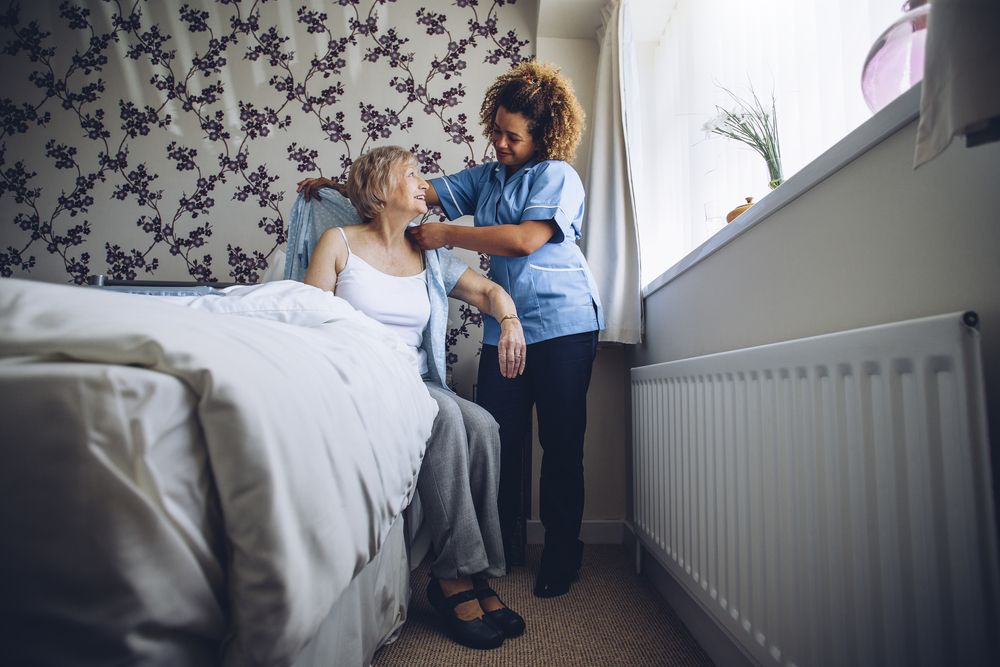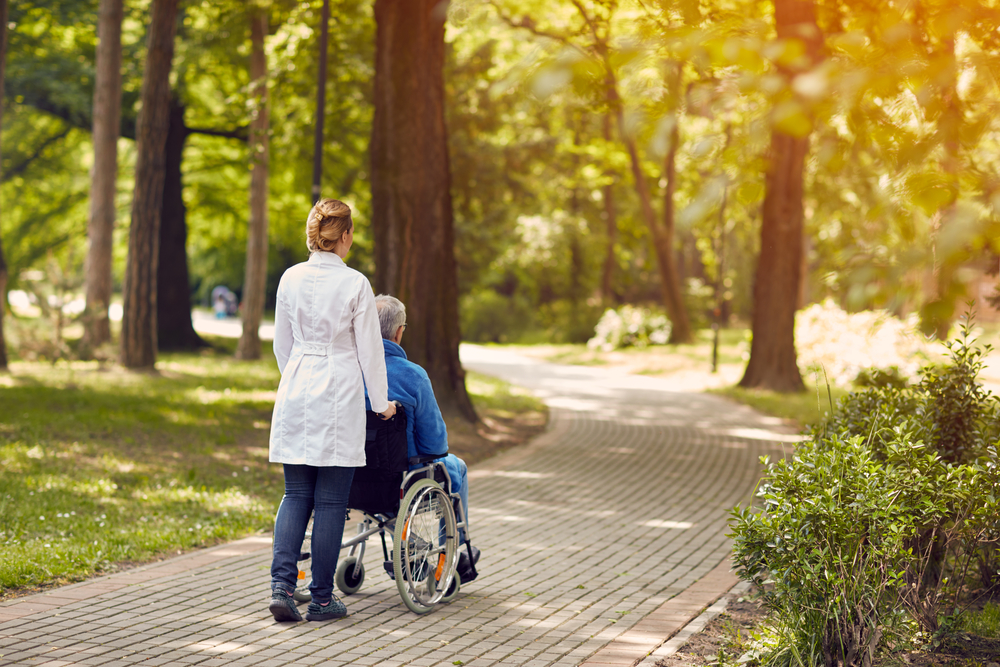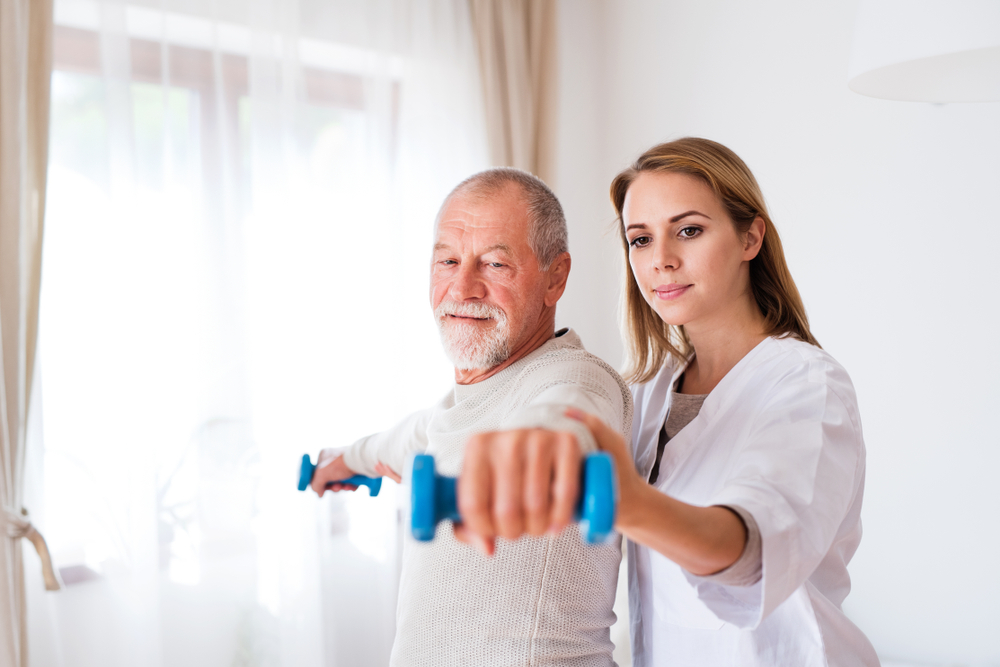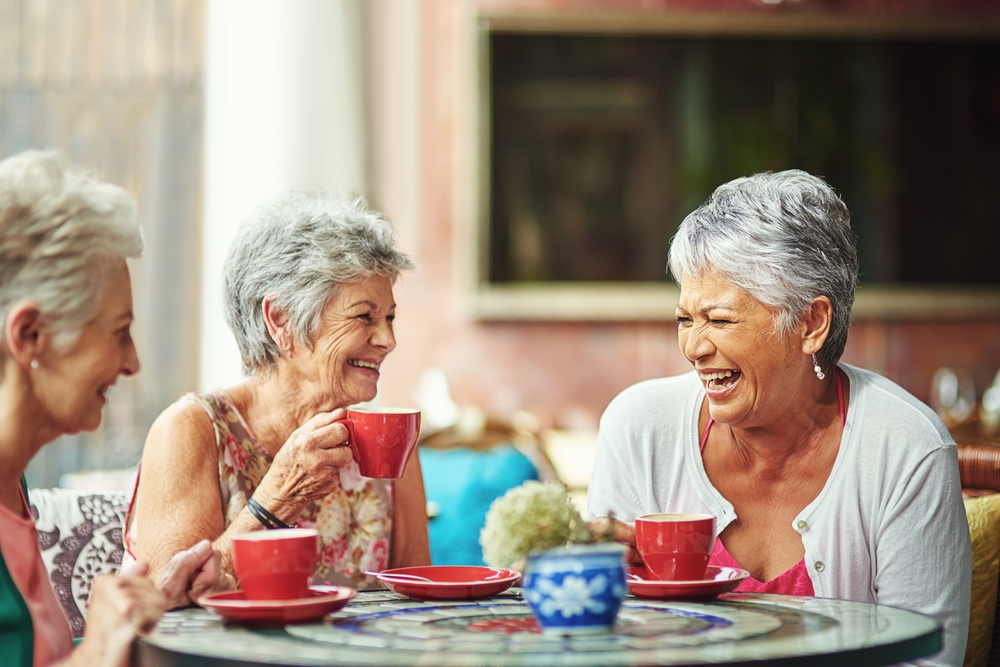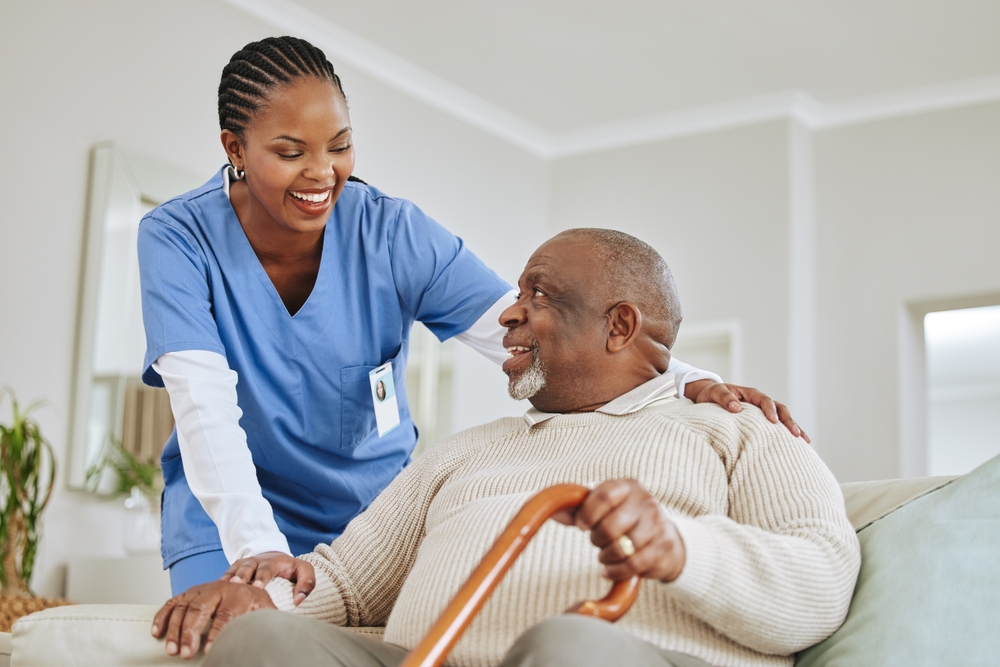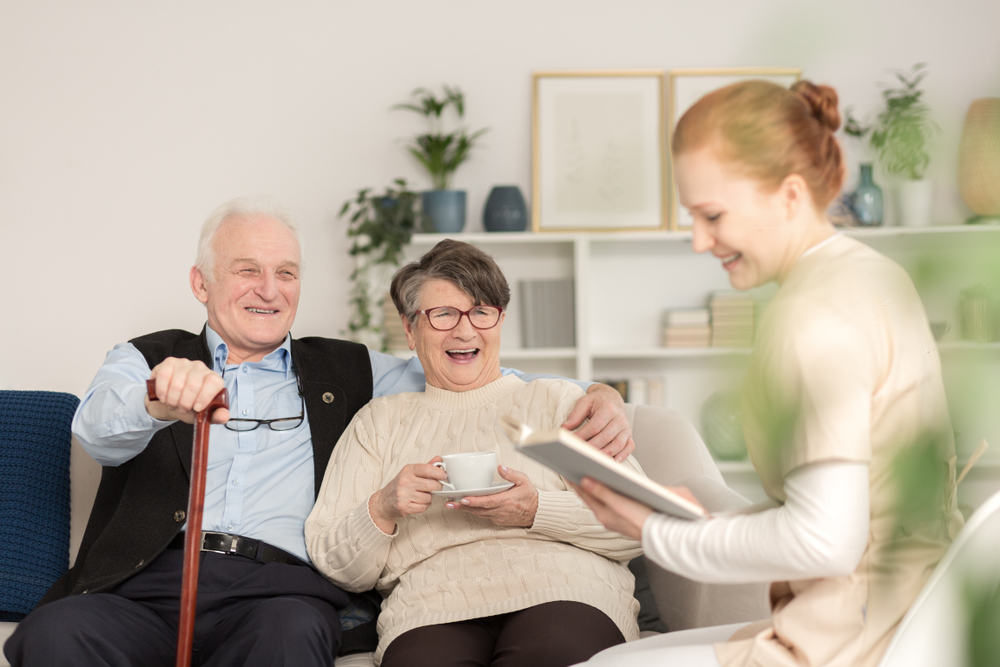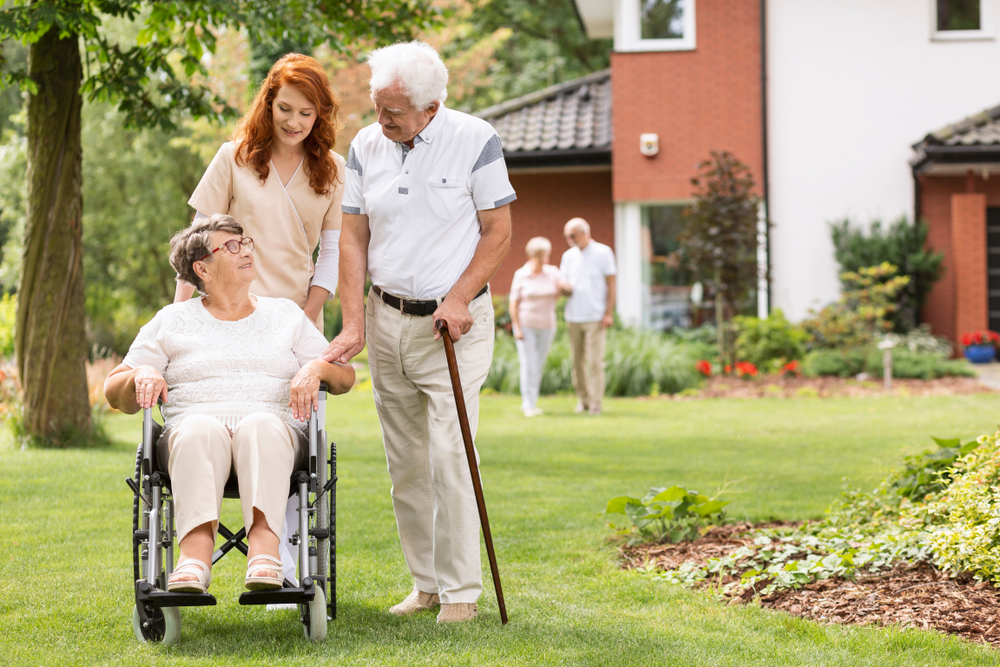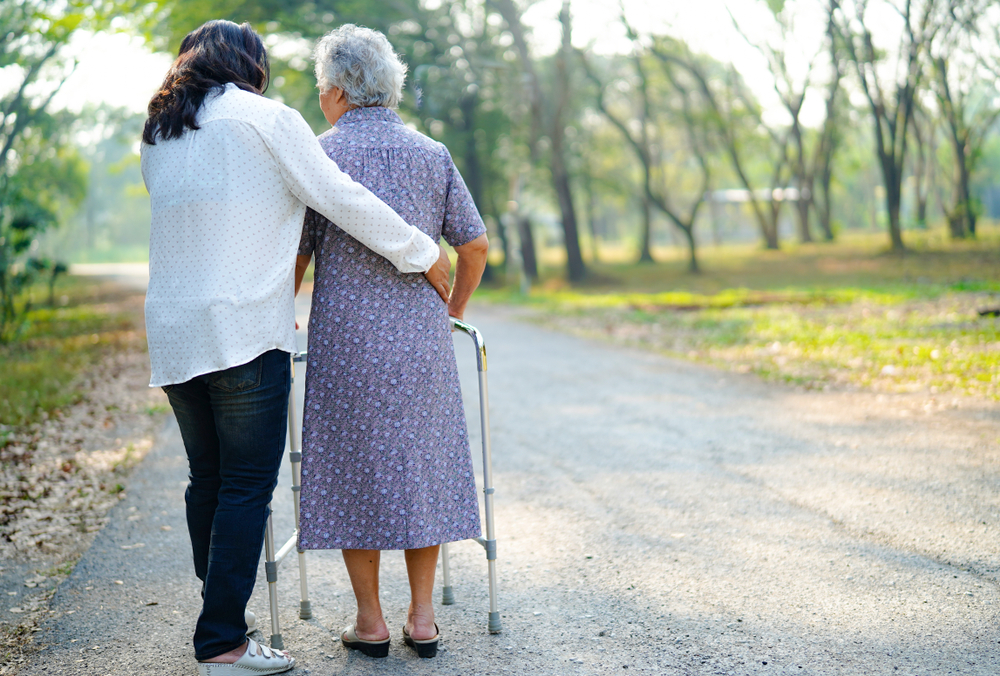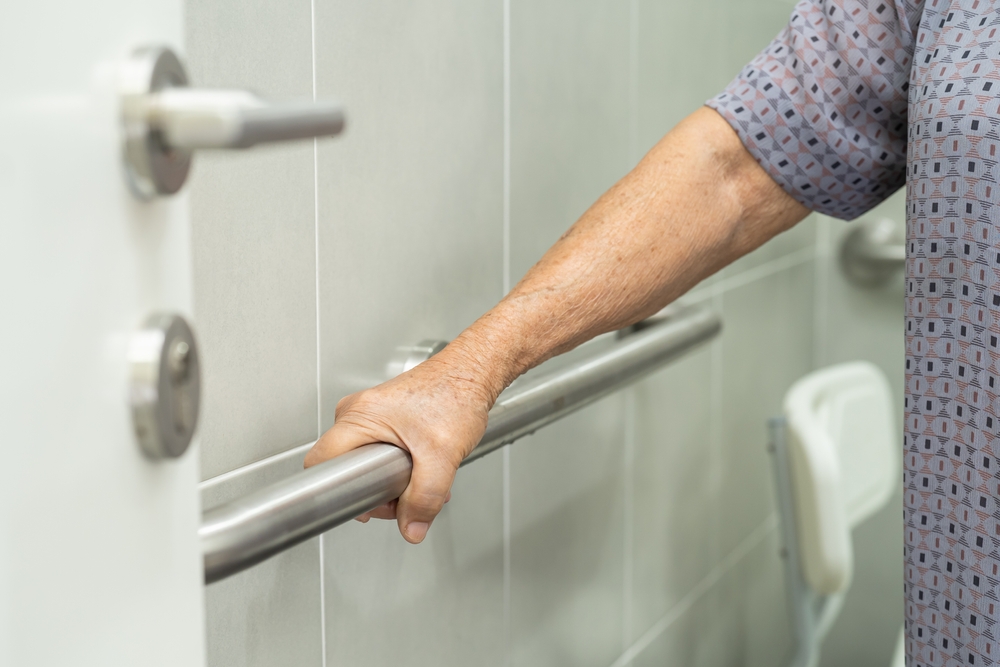Dementia is a challenging condition that affects millions of seniors worldwide. It impacts memory and thinking and can get worse over time without proper care. However, if your elderly spouse has been diagnosed with dementia, some strategies can help manage the progression of their condition. We’ll share them with you in this month’s blog so you can provide the best possible dementia care for your loved one.

Educate Yourself about Dementia
Understanding dementia is essential for providing effective care. Educate yourself about the different types of dementia, the symptoms, progression, and common challenges associated with each type. Knowing what to expect can help you prepare emotionally and practically for the caregiving journey.
Related: Learn more about how to catch early signs of dementia in seniors here.
Establish a Routine
One important tip for caring for an elderly loved one with dementia is to establish a consistent routine. Dementia can cause confusion and disorientation, and a predictable routine can help provide structure and stability, reducing anxiety and agitation for the individual. Stick to regular meal times, bedtime routines, and daily activities as much as possible. Consistency can help your loved one feel more secure and comfortable in their environment, making caregiving smoother for both of you.
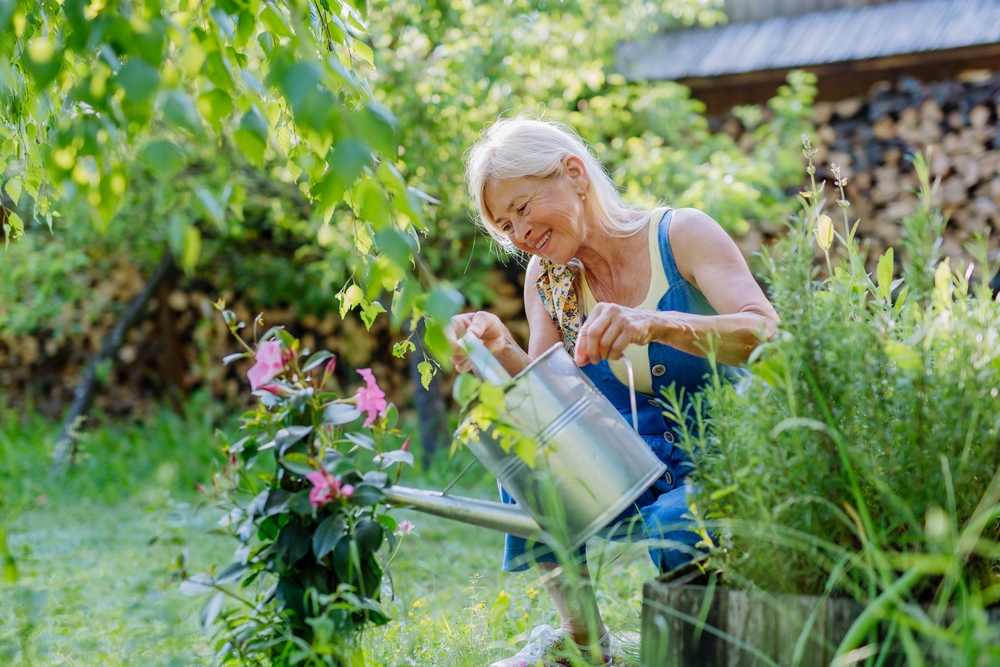
Encourage Independence
While it’s essential to provide support, encourage your loved one to maintain independence as much as possible. Break tasks into manageable steps, offer assistance when needed, but allow them to do things on their own when they can. They may be able to assist with light household tasks such as setting the table, folding laundry, or watering plants. Simplify tasks and provide clear instructions and supervision as necessary.
Find a Reliable Support System
As a caregiver, you might believe that you’re too occupied to engage with others. Nevertheless, it is important to prioritize time to talk to others. When you have people in your life whom you can share your thoughts or concerns with, they can offer validation and encouragement, reminding you that your efforts are valued and appreciated.
Conclusion
Remember, you’re not alone on this journey, and there are resources and communities available to support you every step of the way. At Home Instead Senior Care, we understand the importance of compassionate dementia care and are here to provide support and guidance. Visit our website or call us at (910) 342-0455 to schedule a consultation and explore how our services can enhance your caregiving journey and overall well-being.

